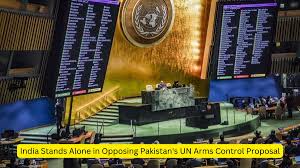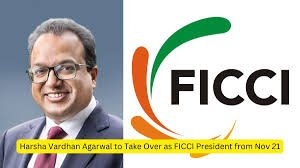T.V. Somanathan Appointed as New Cabinet Secretary
Introduction to the Appointment
In a recent significant development, T.V. Somanathan has been appointed as the new Cabinet Secretary of India. This prestigious role involves overseeing the functioning of the central government and coordinating between various departments and ministries. Somanathan, a 1987-batch Indian Administrative Service (IAS) officer from the Tamil Nadu cadre, succeeds Rajiv Gauba in this crucial position.
Professional Background of T.V. Somanathan
Before his appointment as Cabinet Secretary, T.V. Somanathan served as the Secretary of the Department of Economic Affairs (DEA). His tenure at the DEA was marked by his involvement in key economic reforms and policies that have influenced the country’s economic landscape. Known for his expertise in financial management and policy implementation, Somanathan’s new role will place him at the helm of central administrative functions.
Significance of the New Appointment
The role of the Cabinet Secretary is pivotal in the Indian administrative system. This position requires coordinating with various government departments, ensuring the smooth execution of government policies, and managing critical issues of national importance. T.V. Somanathan’s appointment is expected to bring a new perspective to the administration and enhance the efficiency of government operations.
Challenges and Expectations
T.V. Somanathan’s new role comes with its own set of challenges. He will be responsible for navigating complex administrative issues, streamlining governmental processes, and ensuring effective implementation of policies. His track record suggests a proactive approach to problem-solving, which will be crucial in addressing the current administrative challenges.
Future Implications
As the new Cabinet Secretary, Somanathan’s decisions and leadership will significantly impact the governance and administrative efficiency of the central government. His appointment is likely to bring about strategic changes in how governmental affairs are handled and might influence future policy directions.

Why This News is Important
Strategic Role in Governance
The appointment of T.V. Somanathan as Cabinet Secretary is crucial as this role is central to the functioning of the Indian government. The Cabinet Secretary is responsible for ensuring that various government departments work in harmony and that policies are implemented effectively.
Impact on Administrative Efficiency
Somanathan’s background in economic affairs suggests a focus on improving administrative efficiency. His experience will likely lead to more streamlined processes and effective policy execution, which can significantly influence the governance landscape.
Leadership in Policy Implementation
Given his previous role in the Department of Economic Affairs, Somanathan is expected to bring a new approach to policy implementation. His leadership will be instrumental in navigating economic and administrative challenges facing the government.
Significance for Future Government Decisions
The Cabinet Secretary’s role is pivotal in shaping future government decisions and policies. Somanathan’s appointment could lead to strategic shifts in how government operations are conducted and might impact upcoming policy directions.
Public and Administrative Reactions
The appointment has garnered attention both within administrative circles and the public domain. Reactions to Somanathan’s appointment will be closely observed to gauge the anticipated changes in government functioning and policy implementation.
Historical Context
Previous Cabinet Secretaries
The role of the Cabinet Secretary has been held by several distinguished individuals over the years, each contributing to the Indian administrative system. Rajiv Gauba, the predecessor, served with a focus on administrative reforms and efficient policy implementation.
Evolution of the Role
The position of Cabinet Secretary has evolved significantly since its inception, adapting to changing political and administrative needs. The role has become increasingly important in coordinating between various branches of the government and ensuring effective governance.
Economic and Administrative Challenges
Over the years, the Indian administration has faced numerous challenges, including economic reforms, policy implementation, and bureaucratic efficiency. The appointment of a new Cabinet Secretary often signals a strategic shift in addressing these challenges.
Key Takeaways from T.V. Somanathan’s Appointment
| Serial Number | Key Takeaway |
|---|---|
| 1 | T.V. Somanathan has been appointed as the new Cabinet Secretary of India. |
| 2 | Somanathan previously served as the Secretary of the Department of Economic Affairs. |
| 3 | The Cabinet Secretary plays a critical role in coordinating government departments and policy implementation. |
| 4 | Somanathan’s appointment is expected to bring a new perspective to administrative efficiency. |
| 5 | His experience in economic affairs may influence future policy directions and administrative strategies. |
Important FAQs for Students from this News
1. Who is T.V. Somanathan?
T.V. Somanathan is a 1987-batch IAS officer from the Tamil Nadu cadre, recently appointed as the new Cabinet Secretary of India. Prior to this role, he served as the Secretary of the Department of Economic Affairs.
2. What is the role of the Cabinet Secretary?
The Cabinet Secretary is the highest-ranking civil servant in the Indian government, responsible for coordinating between various government departments, overseeing administrative functions, and ensuring effective implementation of policies.
3. Who did T.V. Somanathan succeed as Cabinet Secretary?
T.V. Somanathan succeeded Rajiv Gauba as the Cabinet Secretary of India.
4. What was T.V. Somanathan’s previous role before becoming Cabinet Secretary?
Before his appointment as Cabinet Secretary, T.V. Somanathan served as the Secretary of the Department of Economic Affairs (DEA).
5. Why is T.V. Somanathan’s appointment significant?
Somanathan’s appointment is significant due to his extensive experience in economic affairs and policy implementation. His leadership is expected to enhance administrative efficiency and influence future government decisions.
Some Important Current Affairs Links














